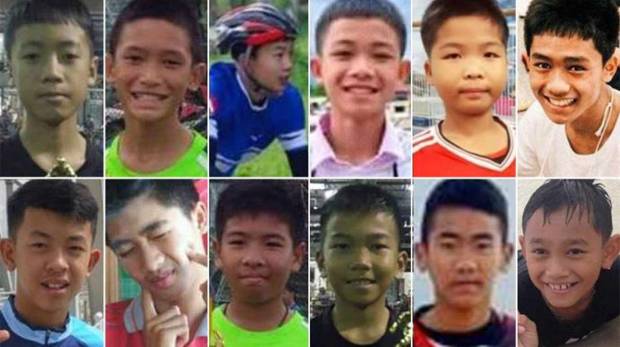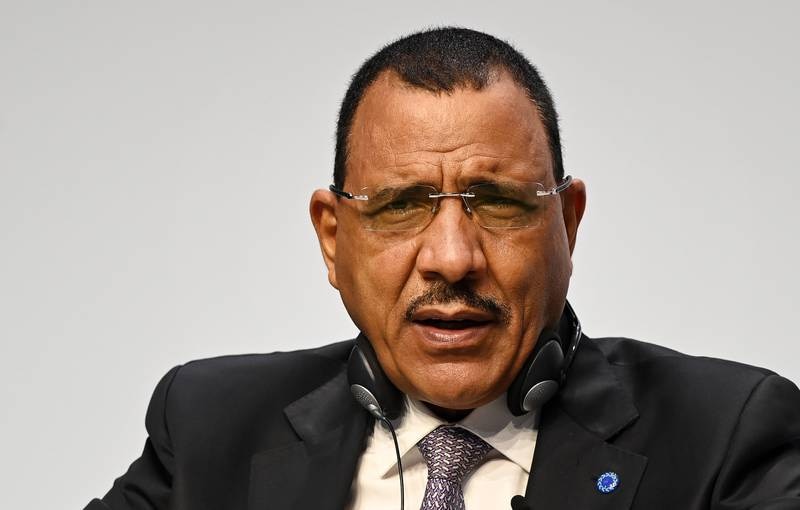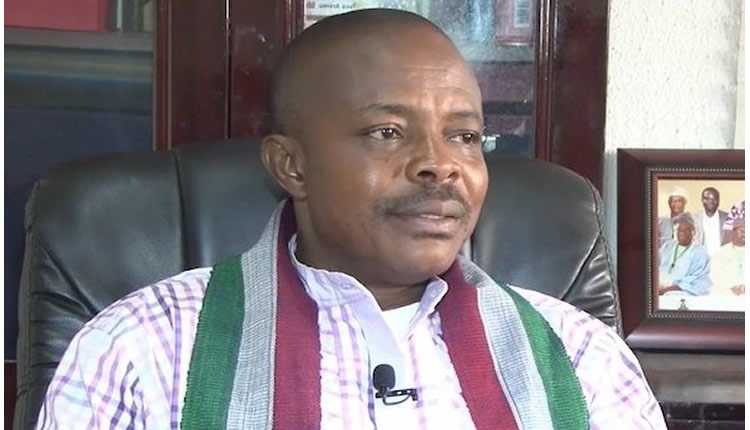By Asia News
All 12 boys and their coach have been safely brought out of the flooded Tham Luang cave in Thailand.
“12 ‘Wild Boars’ and coaches out of the cave. Safe everyone. This time, waiting to pick up 4 Frogs.” Thai Navy Seals posted on their Facebook page.
June 23: After a practice game, the Wild Boars football team full of minors head off to explore a cave. Their coach runs after them into the Tham Luang cave complex.
And rain starts to pour, eventually blocking the entrance.
It’s a muddy labyrinthine complex that cannot be navigated without extreme flexibility and fitness – some of these boys are only 11. The oldest person on this expedition is 25.
After trudging through 3.2 kilometres of dangerous terrain the boys find a 10-square-metre ledge that’s elevated. Now they must wait. And wait.
 Reuters
Reuters
It’s freezing and dark and dank in the cave. The rations are whittling away. Muddy, bracken water is rising slowly, swallowing precious space. The air is thinning; light retreating. Scared. Cold. Hungry. Thirsty. Homesick. Twelve boys – aged 11 to 16 – and their coach are stuck.
There’s a cloud of hopelessness in the air. “I’m sure they felt like they are going to die; they felt like insecure, [hopeless], and of course they were far away from their parents, far away from [people] who can help them; from [people] who are [going to] support to them,” says Dr Mrabet Jihene, clinical psychologist at Life Psychological Counselling Centre, taking a deep breath. “I’m sure it has been a really, really difficult in the physical and psychological aspects [for these kids]”.
Nine days later, there is a flicker of hope. They are found by divers; they know they are missed, they feel they can make it back. But not just yet. The logistics are dumbfounding – the weakness that has seeped into their bones is not helping matters. But they know their parents – along with the world – are waiting with baited breath to see them home and safe.
Now, on July 9, eight of those stuck have been ferried outside, joking of fried rice and smiling at their fortune. They were in survival mode, explains Dr Jihene. But the relief of the survivors may be short-lived. “What they have been through is trauma, and of course going outside the cave now they will go through [what is called] post-traumatic stress,” she explains.
What can we expect?
“Post-traumatic stress is about experiencing intrusive memories,” explains the doctor, “they could have a panic attack – because even if they safe they will continue to feel that they are somehow insecure [and] emotionally overwhelmed. Chronic pain and headaches can appear sometimes. Especially because you are talking about kids.”
The psychological stress can also manifest in physiological ways. “Some of them can experience asthma, for example, [or have a] respiratory problem.”
They may also exhibit aggressive behavior and irritability. Also, they may try to cope with the scenario by replaying it over and over – using toys -or through video.
Dr Jihene says some of them will have little or no memories…because they are trying to forget them. ”Because each time they will remember what will happen, they will feel insecure again. So some of them unconsciously will contain their memories of [the trauma]”.
They can also be something like hyper vigilant, and it’s a physiological reaction on exposure to internal or external cues that remind them of symbols or aspects of the traumatic event, she explains.
Sleep patterns may be disturbed. “This can also come with insomnia, nightmares and flashbacks again and again, a decrease in concentration, and of course they can [get some] specific phobias like claustrophobia.”
“Sometimes we can see some of them going through regression attitude. Which means that some of them can have secondary enuresis, or bed-wetting. Moving back to a child-like situation can help them feel secure. We can see some sleeping issues in children – them wanting to sleep with their toys, or refusing to sleep alone. Or asking for their mother, or father, or both their parents to sleep with them because they need the [reassurance].”
What can we do to help?
Dr Jihene explains that the authorities are already on the top of things. They are being provided with medical and safety aid. Next comes dialogue and therapy.
Once out, “We have to increase the social support, which allows them to express their feelings together. The emotional bonds can help them to realise what really happened to them, to understand that it has been shared by others,” she says. “The self will move from individual self to group self and group self will have enough power and to calm the fear”.
“We need also need to address the trauma in a nurturing way – for example, they can talk about what happened. Because if you are under the emotional fear, you will not be able to control your [reaction] or understand what happened.”
She says practical solutions must be presented to the children. The questions to be asked are: what is the problem or how can I protect myself if something like this happens again?
Another coping mechanism is desensitisation. “It means that we are going to little steps, starting with imagined exposure to the trauma and after that we can move to the [real] trauma…going to the site for example of the event. And repeating that [exposure] until the person is no longer responding with high levels of the stress; [explain] it’s not about the cave, not about the place, it’s about a situation that happened.”
Speak rationally. “The most important thing is, what we can do to avoid being in the same situation again. But not what can we do to avoid the cave, for example,” she says.
“Of course, some of them may not have the ability to use the resilience. So they will experience a high level of post-traumatic stress [disorder] – and in that case we should refer them to professionals to help them go forward,” she says.
Older and wiser or just more traumatized?
When those trapped could finally write letters to their well-wishers outside, one of the first things the coach did was apologise to the parents. His guilt was palpable; his torment absolute. Not only was his own life at stake he was also in-charge of a group that looked up to him and trusted him with their lives.
“I don’t know his personality or coping skills but a normal person in that situation can be under a very high depression. [He may resort to] substance abuse, or [have] suicidal thoughts – because they [people in such a situation] can feel, ‘I don’t deserve to live because I was not responsible enough.’
“It’s not about just a message saying that we forgive you and we know it’s not your fault; [getting over trauma] is a process. Because when we are depressed and are under such stress it will take some time to get relieved from it,” she says.
The fact that the parents were forgiving may have loosened the knot of guilt around his neck, but it is sure to leave emotional scars. “He knows that those people [who are affected] somehow understand, they do not blame him [and this may keep him from taking drastic steps].”
“100 per cent it [forgiveness] will help.”
The line of retrieval
The children are being taken out in batches; so far eight have made it and are being checked for any health trouble. But then isn’t it normal to feel sidelined when you are in a scary dark space where the air is getting thinner and people other than you are getting out?
How does one help a child understand that he is important – even if he is the last one out?
Here’s what they need to hear: “We were here waiting for you.”
“The children must feel the support,” explains the doctor. “It’s all about support, dialogue and love. Showing to the kids that they are so loved and they are so precious the whole country was their just waiting for them to go out safe. And this feeling will help them overcome the trauma after sometime.”
























Leave a comment